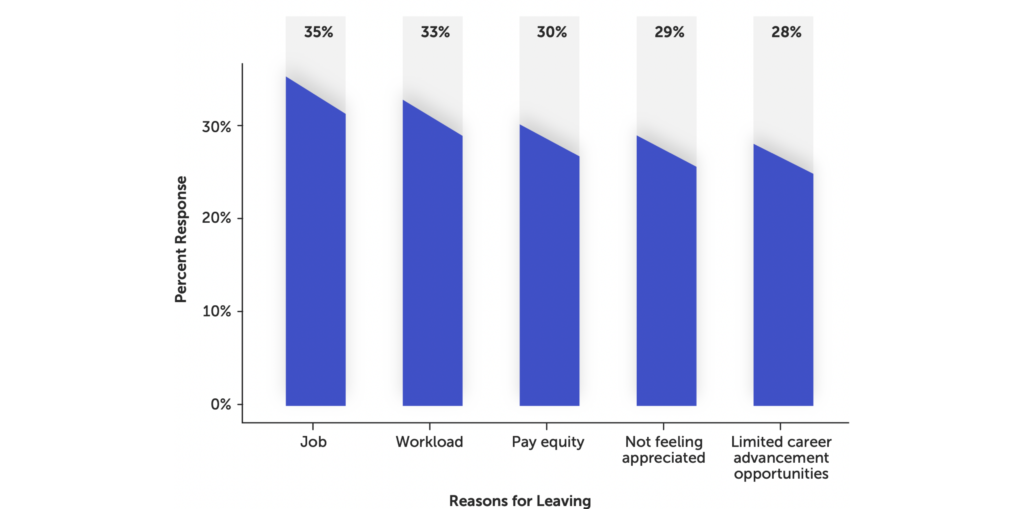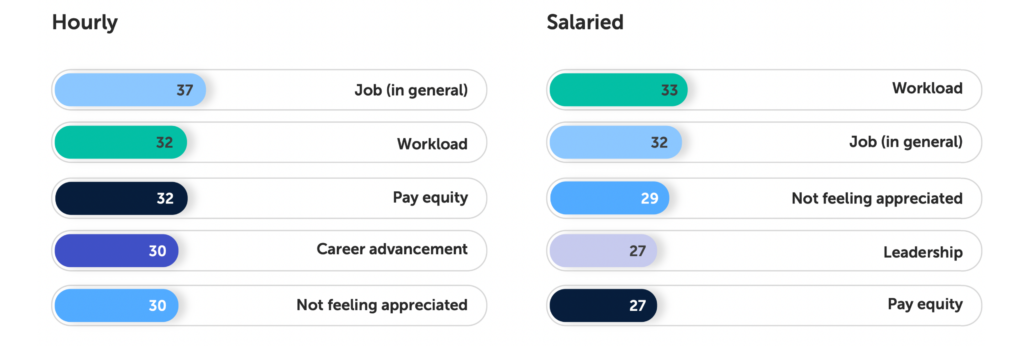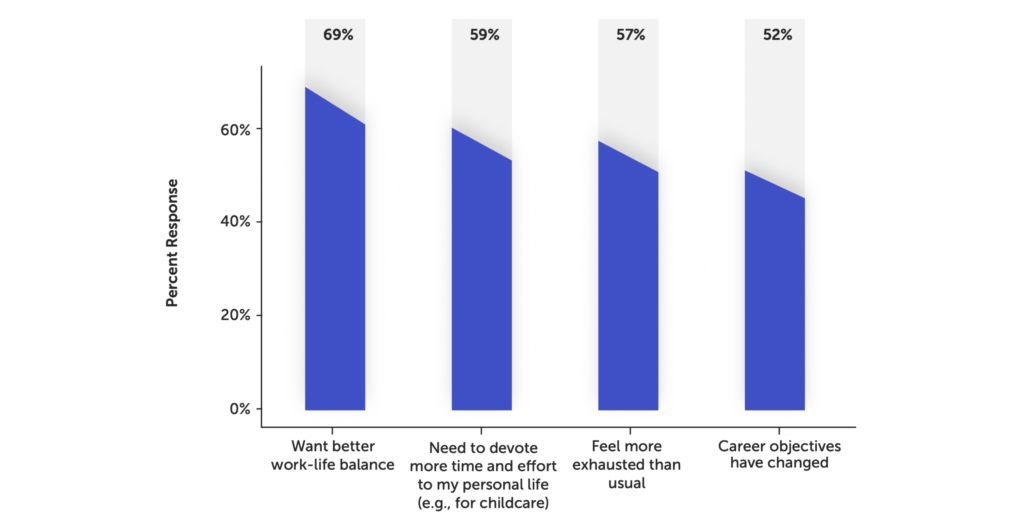If you’re wondering why so many people are quitting their jobs, here are the top answers from our survey of 1,471 workers.
Having an employee listening strategy in place, tracking employee experience data, putting employee experience best practices into practice, and optimizing the overall employee experience — these are all steps organizations can take to boost employee retention. But even when companies take these measures, employee turnover is a challenge that all leaders face, which can disrupt business operations, the customer experience, and employee experience.
That’s why understanding why good employees leave — and what organizations can do to prevent churn in the future — is essential for companies looking to gain a competitive advantage.
Figuring out why employees quit their jobs is exactly what our teams at Sense360 by Medallia and the Medallia Institute set out to do right at the height of the Great Resignation, when millions of people were leaving their jobs.
For these insights, we surveyed 1,471 workers in the US who indicated they’d either recently left their jobs or said they were thinking about quitting. The full findings of this study are available in our report, Insights into the Great Resignation: Understanding Why Employees Leave Their Jobs.
Here are some of the most important highlights, including the top reasons why good employees leave and why good employees quit as a result of the pandemic.
5 Top Reasons Why Good Employees Leave
Here is the ranking of the most common reasons why people quit their jobs, according to the survey responses we received: because of (1) their jobs in general, (2) their workloads, (3) concerns about pay equity, (4) not feeling appreciated, and (5) having limited career advancement opportunities.
Top Five Reasons Why Workers Left Their Last Employer
We also looked at the reasons why people quit their jobs based on job type. Here are the rankings of responses hourly workers provided: because of (1) their jobs in general, (2) their workloads, (3) concerns about pay equity, (4) having limited career advancement opportunities, and (5) not feeling appreciated. Here are the responses salaried workers shared: because of (1) their workloads, (2) their jobs in general, (3) not feeling appreciated, (4) leadership within the organization, and (5) concerns about pay equity.
Top Five Reasons Why Employees Quit (hourly vs. salary)

4 Reasons Why Employees Quit During the Pandemic
Nearly one-third of our survey takers told us that the Covid-19 pandemic influenced their decision to leave. And of these workers, nearly 70% said they realized they wanted a better work-life balance, and more than half said they needed more time for their personal life, felt more exhausted than usual, and that their career objectives had changed.
Four Reasons Why Employees Quit During the Pandemic
More on Why People Quit Their Jobs, and How to Keep Employees
As part of our research, we uncovered one simple but incredibly effective step that employers can take to drive employee satisfaction, engagement, and experience, all factors that can strengthen employee acquisition and retention. Not only is it linked to employee loyalty and likelihood to recommend their employer as a great place to work, it’s something that more than 50% of employees said their companies rarely do or never do at all. That’s a missed opportunity to make things better for employees, one that organizations can act on to keep their best people around.
Read the full report: Insights into the Great Resignation: Understanding Why Employees Leave Their Jobs to find out what this important employee retention strategy is and discover even more insights on why good employees leave.










